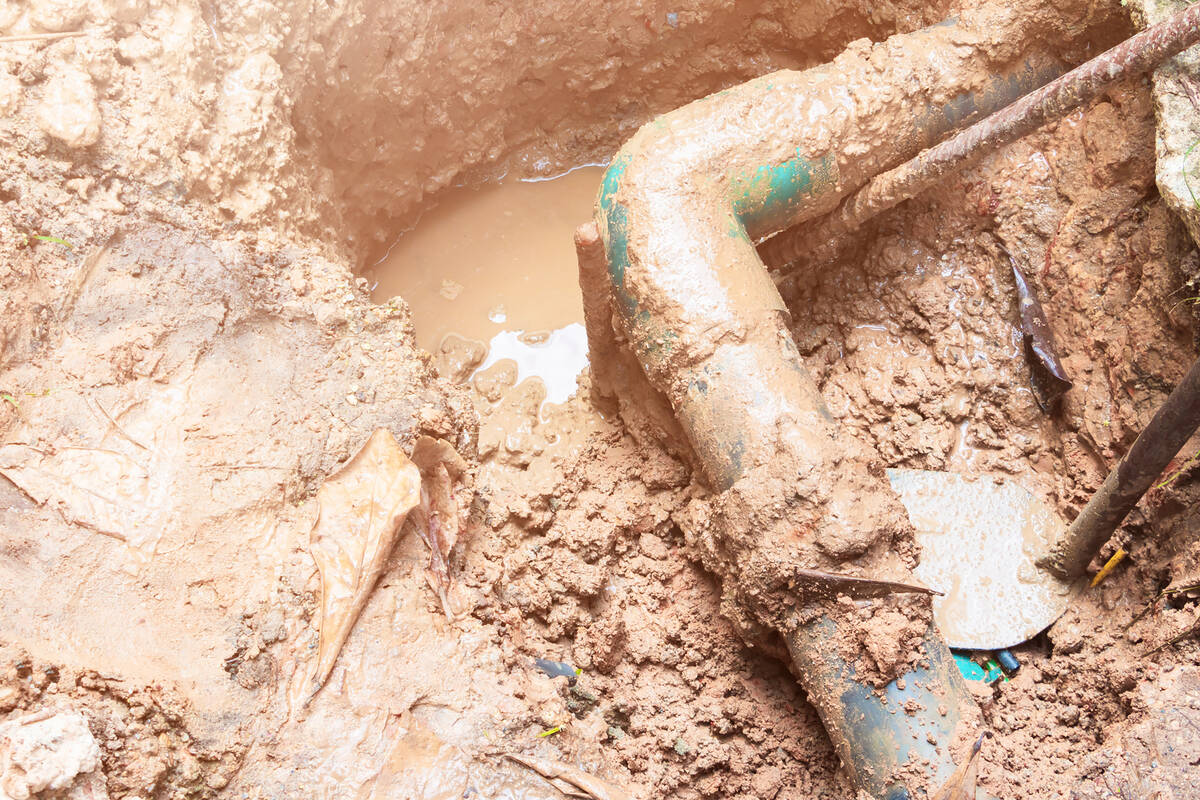Telltale signs point to leak in PVC pipe underground
Q: I’ve noticed two things about my lawn. First, there’s an area that is really green and much taller than the surrounding grass; and second, this same area is very soft. I know something is wrong, but I’m not sure how to fix it.
A: I’ll bet your water bill has also increased. The problem is you’ve got a leak from either a sprinkler pipe or the main water line. The bummer is that the pipe is underground.
I suggest that you attempt this repair yourself only if the pipes are PVC. If your house isn’t too old, you probably have PVC or a plastic pipe. You can check this by looking in the water meter box and the sprinkler valve box.
If the leaking pipe is coming from the water main or where the sprinkler line branches off the main line, the ground will be much more saturated than if it’s from a sprinkler line after the valves. This is because the leak would be constant rather than only when the sprinklers are on. You can tell if it’s the water main by checking the water meter.
To do this, make sure all plumbing fixtures are off in the house, then check the dial on the water meter. If the dial is spinning, the leak is in the water main.
Assuming it isn’t the water main, you have to find the leak. Start digging where the ground is soft. Use a shovel to cut out the grass in squares, and set them aside. Then start removing the dirt.
Once you find the pipe, dig alongside it to expose more of it. Around the leak, there will be a soupy mess. Turn off the water and, as best you can, move the mud and water away from the pipe. You’ll also have to remove the mud from under the pipe. You can use a trenching shovel or a small empty can to do this.
As you look for the actual leak, you’ll be digging, removing muck and turning the water on and off. Once you find the leak, dig out the area, because you’ll need room to work all around the pipe.
The leak will be coming from either a break in the wall of the pipe or from one of the fittings. You can repair the break using several methods, all of which start at around $15 in parts.
If the break is in the wall of the pipe, you can cut out the damaged area with pipe cutters, then splice a new length of pipe in its place. After that, you can put a straight coupling on each end and then glue the new length of pipe in its place.
The only problem with this method is that you must expose enough of the pipe to allow it to flex enough to get the new pipe in place, all while the glue is hardening. If the replacement pipe isn’t the right length, or the broken pipe won’t flex as much as you thought it would, you’re in trouble. Remember, you need to clean the ends of the pipe and the insides of the fittings with PVC primer before gluing them together.
Easier yet, use your elbows — pipe elbows that is. Glue an elbow to each end of the broken pipe so they face upward. Cut a length of pipe to span this distance and glue two elbows to this pipe. Glue a 2-inch section of pipe into the elbow and push down into the elbows that are facing upward.
You can also use a kit that covers the break, if the break is small enough. The kit contains two pieces of PVC that cover the broken area.
Apply glue on each surface and snap the pieces around the break.
Another method is to use a PVC compression fitting, which looks like a small tin can with removable ends. Simply unscrew the ends and place them over each end of the broken pipe.
Next, place the rubber washer over each end of the break. Place the fitting in between and hand tighten. The rubber gets squeezed and keeps the water from leaking out. No glue is needed.
Finally, there is a telescoping fitting. This is really cool. Just glue one end on one side of the broken pipe, and then pull out the telescoping end and glue it to the other side. There are two O-rings that keep the water from leaking. It’s that easy.
If the leak is coming from a fitting, you’ll need to rebuild the area, which involves cutting back the pipes so there’s enough space for replacement couplings and new fittings, as explained earlier.
Mike Klimek is a licensed contractor and owner of Las Vegas Handyman. Send questions to handymanoflasvegas@msn.com or 4710 W. Dewey Drive, No. 100, Las Vegas, NV 89118. Visit handymanoflasvegas.com.
Do it yourself
Project: Repairing an underground PVC pipe leak
Cost: Around $15
Time: 1-3 hours
Difficulty: ★★★























